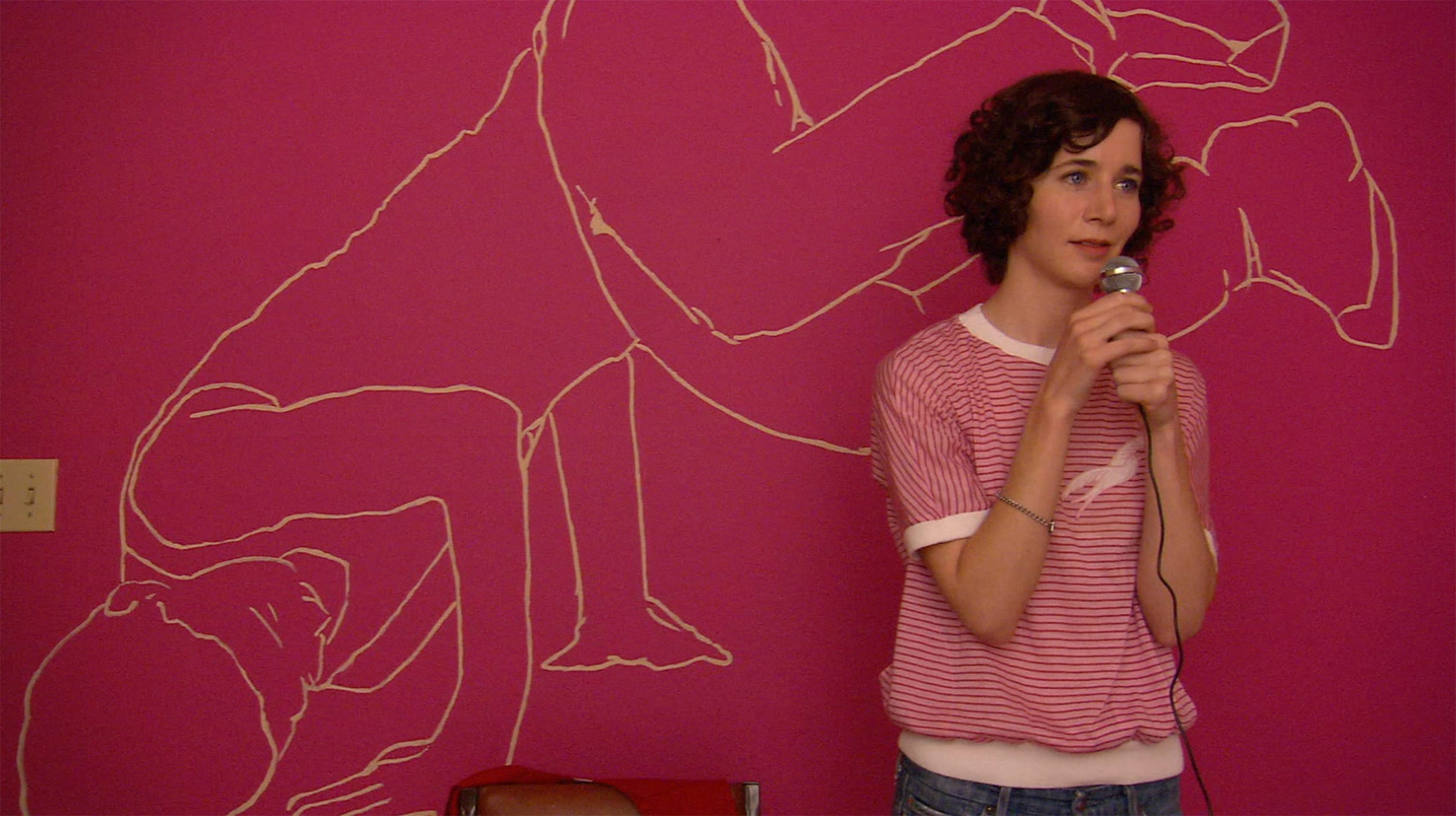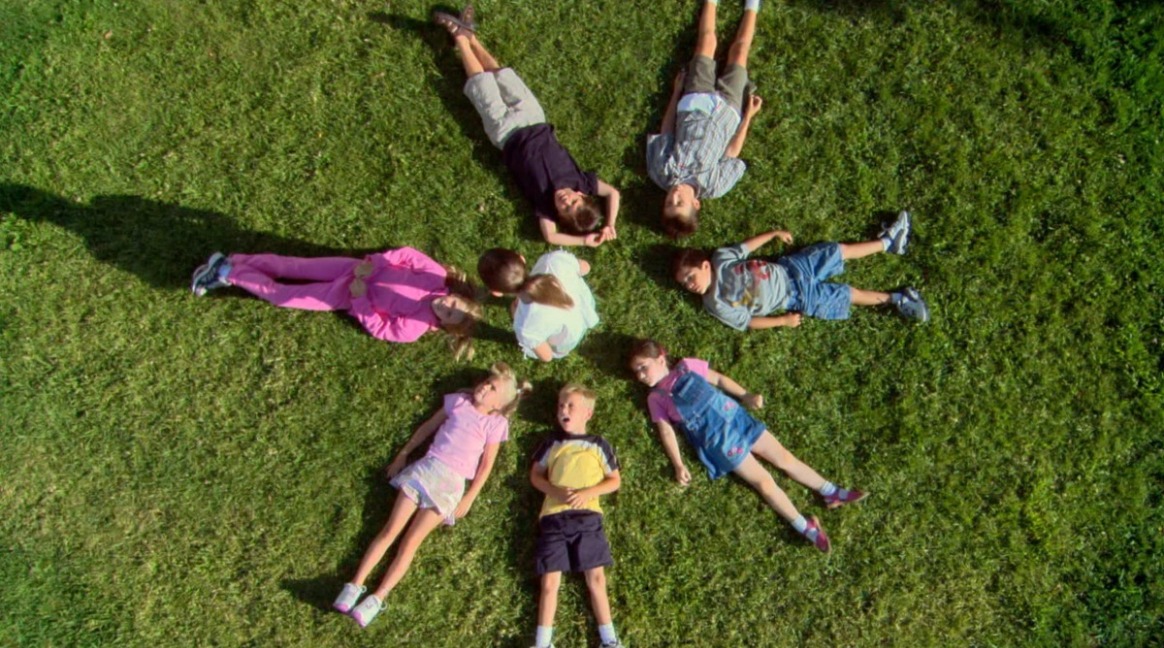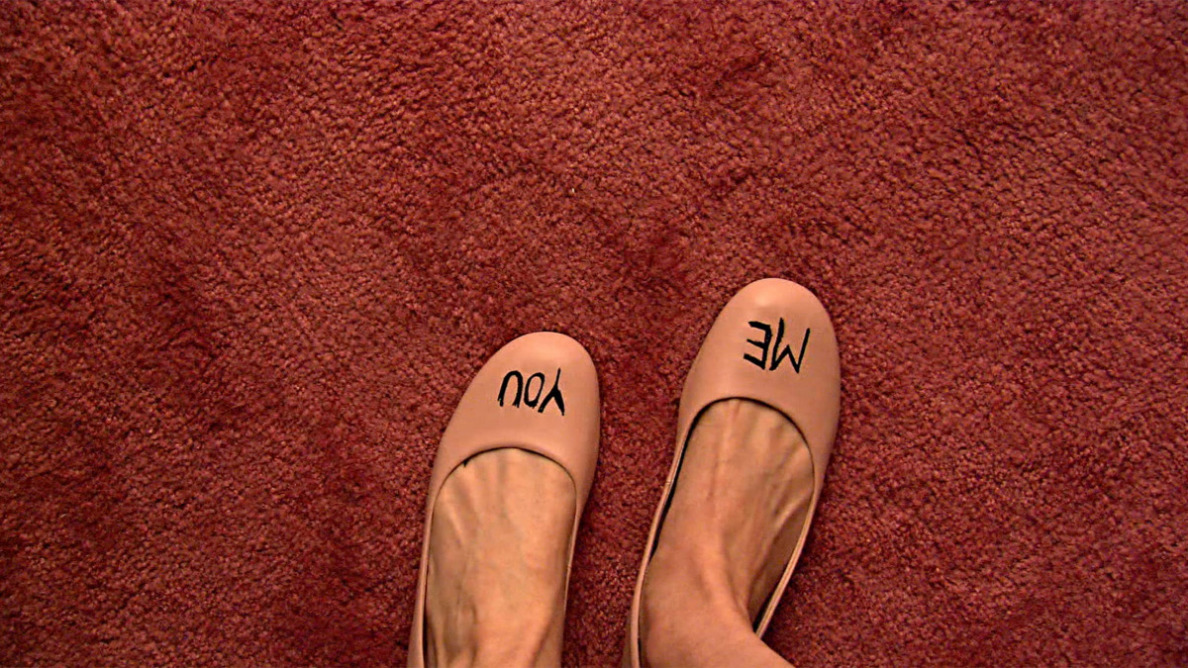In the world of the film, only those at the beginning and end of life inhabit a sort of genuine openness. The least corrupted soul is the smallest child in the film, six-year-old Robby (Brandon Ratcliff), one of two sons of the shoe salesman Richard (John Hawkes), whom we meet just after he has separated from his wife, Pam. Robby’s still and startled face registers wonder at all the things that happen around him. Christine (July) is an artist who works driving senior citizens around in an “Eldercab,” and two of her clients are the nearly as sweet and open Michael and Ellen, who live in a retirement center called, in a wry touch, Saint Tod’s (tod is “death” in German). Here, in their last years, Michael and Ellen have each discovered that the other is their life’s profoundest love, and though they’re sad about encountering each other so late, this fact doesn’t embitter them. It somehow makes them even softer, gentler. Robby, Michael, and Ellen glow with openness, yet, all around them, the rest of the characters are hapless, a little confused. The others, from young to middle-aged, all fall somewhere on the spectrum of desperation, each attempting to return to a lost vulnerability through the purifying act of performance.
It became clear to me, after this time spent rewatching the film in the nuns’ narrow guest bed, that the audience is being primed to see Me and You and Everyone We Know as a sort of braided fugue of performance from the moment the film opens in Christine’s bedroom, where she is recording on video a still photograph of silhouettes against a sunset, modulating the volume of snow on a television set as background noise, and intoning solemn professions of love in the voices of the characters she is imagining into life. Christine is a performance and video artist, searching and hungry but deeply shy, and each of the pieces she makes in this film is an expression of her own longing for connection.
Her work embraces its own sincerity, its own awkwardness and rough edges. Later, Christine will create a dance of love offered and rejected with a video of her feet in ballet flats that she bought from Richard, with whom she has become romantically obsessed, on which she has written me on the left shoe and you on the right. She will create a piece that finally gets her into the Center for Contemporary Art, a different intonation of love over another filmed still photograph, a work that, though she was adamant about being a solo artist, has finally been sparked to life by the voice of her friend Michael, who by now is grieving the death of Ellen. Christine has opened herself through these performances, made herself vulnerable. Outside of her art, her longing for Richard also manifests itself as an enactment: she returns, again and again, to the department store where he works, to haunt him, to gaze at him from afar, as though playing out her own abjection.
For his part, Richard, in his own desperation, creates a last-ditch performance to try to mark the end of his marriage with a sort of mad joy, instead of the lugubrious sorrow that hangs over his family’s house; at the beginning of the film, as he and Pam are dividing their things, he runs to the front yard and stands outside the room in which his two boys are staring at a computer. He knocks on the window to get their attention, then sets his hand on fire. This is performance as both an eruption of grief and an expression of Richard’s hunger to force his children to engage with him. (Unfortunately, instead of alcohol, he uses starter fluid, which burns the flesh of his hand and arm.) Peter (Miles Thompson), Richard and Pam’s older child, remains taciturn in his adolescent sullenness until the very end of the film, when Richard takes his boys for a nighttime walk and Peter suggests they sing a hymn they learned at school. Richard has longed to hear Peter’s voice since his separation from Pam, and when the boy sings, he reveals that that voice is gorgeous, full and deep. This surprises and touches his father. Peter may not be able to speak about what he feels, but, man, can he sing.


